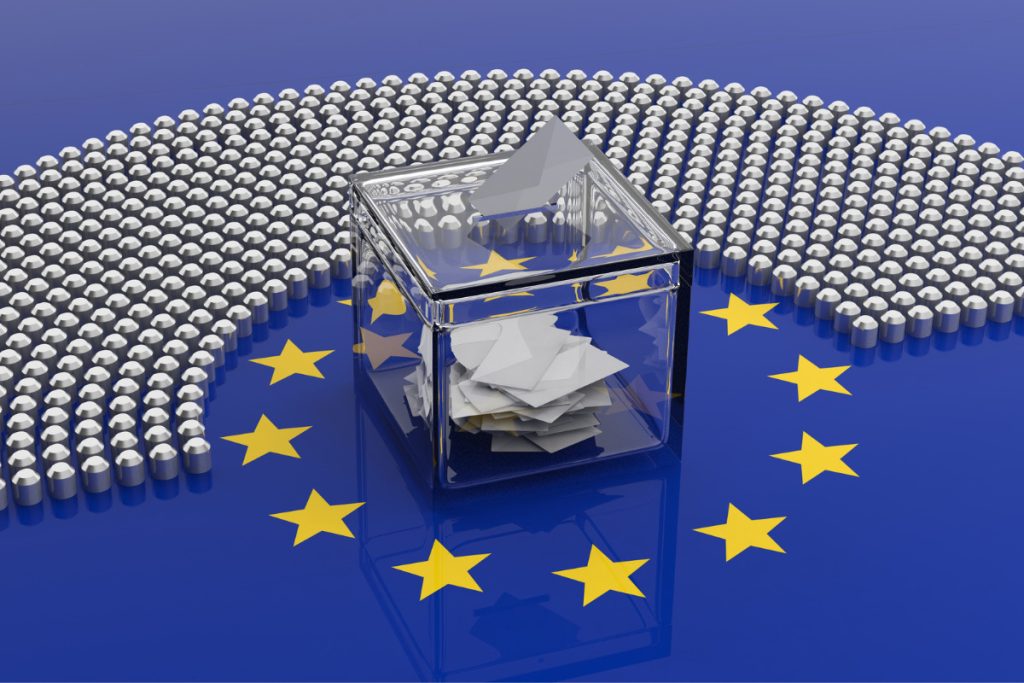The left has found a new rallying cry in the misappropriation of the word “democracy,” claiming it’s under attack by the right, but let’s face it—democracy isn’t exactly on life support just because the right is gaining ground.
In recent European elections, dissatisfaction with the status quo has fueled a surge in support for right-wing parties. What’s surprising was that this wave wasn’t just riding on the backs of older conservatives; even younger voters embraced nationalist sentiments, that called for strict immigration laws, focus on internal economic conditions, and against excessive interference in Russian affairs.
In France, a substantial 32 percent of 18-to-25-year-olds indicated they were ready to back the “far-right” National Rally party, known for its nationalist stance and criticism of European integration, the party has capitalized on discontent over immigration policies and economic stagnation. Predictably, Marine Le Pen’s party is set to secure a hefty 31.5 percent of the vote, outstripping President Macron’s more centrist group.
Germany saw similar results, with the AfD party performing better than expected, securing second place in the EU parliamentary election with nearly 16 percent of the vote. Its Eurosceptic and anti-immigration platform helped AfD to resonate with voter’s dissatisfaction with mainstream parties. The AfD made significant inroads with younger voters, particularly those aged 16 to 24.
These seismic shifts in France and Germany reflect broader trends of Euroscepticism and dissatisfaction with immigration policies across the continent. While a left-leaning, pro-EU majority still holds sway in the European Parliament, there’s no denying the backlash against the globalist agenda is rising.
The roots of this dissent were evident in the 2016 Brexit referendum, where the UK voted to exit the EU. Despite promises to tighten borders, legal immigration to the UK has nearly doubled since then, stoking anti-immigration sentiments and contributing to projected losses for the Conservative Party in upcoming elections.
Liberal media often frames the rise of “far-right” populism as an existential threat to democracy. However, their real fear isn’t for democracy itself but for their version of it—a system that leans heavily toward leftist dominance. Europe, led by the US, has long adhered to a liberal world order that erroneously portrays the rise of the right as a democratic threat. European leaders’ embrace of liberal ideals stems from their dependency on the US, but the younger generation is challenging this narrative. They are breaking away from the US-crafted liberal world order, as it no longer serves their interest.
Curtis Yarvin’s critique hits the nail on the head: when liberals speak of “democracy,” they’re really talking about oligarchy—rule by the few. What rattles the left is that traditional conservatives and centrist leftists often find common ground on immigration policies. This unity makes them particularly wary of legitimate right-wing opposition, which threatens to upset their carefully curated balance of power.
Their attempts to contain the far-right have backfired, as these movements become increasingly integrated into mainstream politics. Authoritarian tactics like hate speech laws and media censorship have proven ineffective in silencing their voices, as voters started to connect more with policies of the right parties.
Socio-economic pressures exacerbated by mass migration have shifted priorities in Europe. The resurgence of nationalism through legitimate right-wing channels was seen as inevitable given these mounting tensions. The surge of far-right popularity in Europe is not shaking the foundations of democracy—it’s revealing its disconnect from the real concerns of the populace. The governments meant to serve their people, have grown deaf to the rising chorus of discontent. Public trust in established parties has eroded, paving the way for alternative right-wing voices to gain ground. This backlash against globalism reflects broader frustrations with policies perceived to favor international interests over national sovereignty.
The rise of right-wing populism challenges the narrative of liberal elites, who struggle to contain its expanding influence. Media portrayals often oversimplify and demonize these movements, ignoring their deeper motivations and growing societal support.
As Europe leans towards nationalism and populism, it marks a significant departure from established political norms. Right-wing gains aren’t just electoral victories; they’re reshaping policy debates and priorities across the continent. These shifts underscore a critical juncture in democratic governance, where traditional paradigms are being redefined and challenged. The ongoing rise of the far-right in Europe demands a reassessment of how democracy responds to the genuine concerns driving this movement.
